The Angry Himalayas X: Extending theatre of conflict to South China sea
The Angry Himalayas X: Extending theatre of conflict to South China sea
Mangalore Today News Network
By Dr. G. Shreekumar Menon
Mangaluru, Nov 16, 2020: In this concluding episode of the series on The Angry Himalayas, the volatile South China Sea is the area of focus. If on one side the Chinese are rattling the Himalayas by military intrusions, in the Far East they are agitating the South China Sea, astheir expansionist zeal is bloating beyond measure.
The naming of seas after certain countries has generated many disputes.
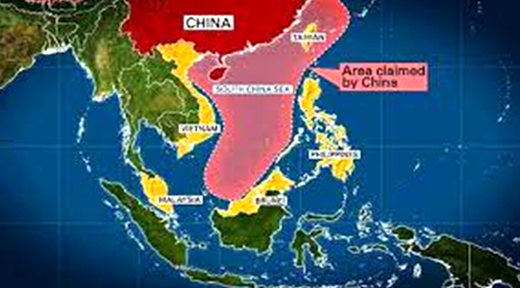
Though the South China Sea is bordered by Brunei, Cambodia, China, Indonesia, Malaysia, the Philippines Singapore, Taiwan, Thailand and Vietnam, China claims complete sovereignty over the sea, and the naming of the sea as “South China Sea” has a lot to do for the Chinese claiming exclusive ownership of the entire sea and all the islands therein, including some countries! To justify the ridiculous claim of ownership of the seas, the Chinese have conceived a demarcation, referred to as the nine-dash line. It is sometimes called as the ten-dash line and also as the eleven-dash line. It refers to the undefined and vaguely demarcated line drawn by China (People’s Republic of China) and Taiwan (Republic of China), for their claims of the major part of the South China Sea.This has predictably generated lots of disputes between China and the other countries of the region. Philippines refers to this sea as West Philippine Sea, Indonesia calls it North Natuna Sea. Presently, there is no unified legal framework governing the South China Sea. Currently, the most relevant, legally-binding agreement governing the South China Sea is the 1982 United Nations Convention on the Law of the Sea (“UNCLOS”).In addition, there are various other Treaties entered into by the regional countries.
The UNCLOS Member States that border the South China Sea are: Brunei, Indonesia, Malaysia, Myanmar, Laos, China, Philippines, Thailand, Vietnam, and Singapore. Cambodia and Thailand have signed UNCLOS, but have not yet ratified the Treaty.
The Parties to the Declaration on the Conduct of the Parties in the South China Sea are Brunei, Cambodia, Indonesia, Laos,Malaysia, Myanmar, Philippines, Singapore, Thailand, Vietnam, and China.
The Parties to the ASEAN Declaration on the South China Sea are Brunei, Indonesia, Malaysia, Philippines, Singapore, and Thailand.
The Contracting Parties of the Treaty of Amity and Cooperation in Southeast Asia, as amended, which border the South China Sea are: Brunei, Cambodia, Indonesia, Laos, Malaysia, Myanmar, Philippines, Singapore, Thailand, Vietnam, and China.
Thus there are a plethora of Treaties involving the South China Sea, and the region can erupt as a major flashpoint, if China proceeds to assert its exclusive ownership, which is bound to happen sooner or later. To be combat ready, the Chinese conduct regular naval exercises including live-fire exercises.
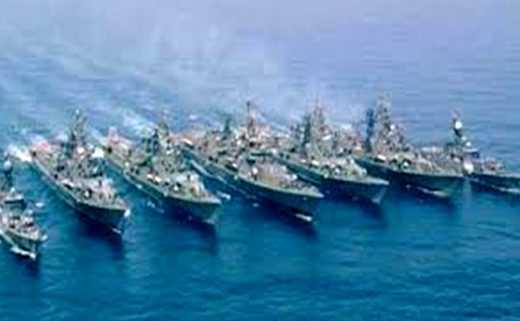
In response, the United States of America has been carrying out periodic naval operations in the South China Sea to assert navigational rights and freedoms in the contested waters, without prejudice to sovereignty disputes.The U.S. in recent exercises involved the Royal Australian Navy and the Japan Maritime Self Defense Force. The U.S. sent the aircraft carrier groups of the USS Nimitz and USS Ronald Reagan into the heart of the South China Sea.
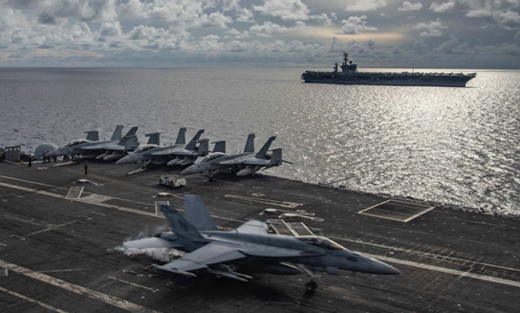
(An F/A-18E Super Hornet lands on the flight deck of the USS Ronald Reagan as the USS Nimitz sails alongside in the South China Sea on July 6 2020 in this photo provided by the US Navy.)
Recently, on November 03rd 2020, India, U.S., Japan and Australia carried out the Malabar Naval exercise in the Bay of Bengal.
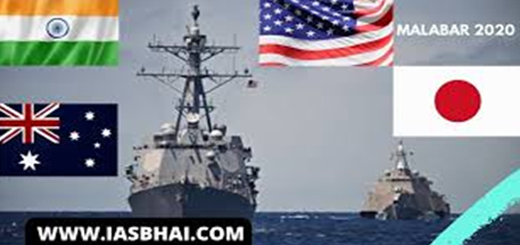
A similar naval exercise needs to be conducted involving all the countries that have the South China Sea as their maritime border, in which India also needs to participate. Indian presence in the South China Sea would be a reminder of the Opium Wars in which China faced a massive rout.
Gen. B.P. Rawat, India’s Chief of Defence Staff, recently observed that “In the overall security calculus, border confrontations, transgressions, and unprovoked tactical military actions spiralling into a larger conflict cannot therefore be discounted.” This writer is of the opinion that in any future Indo-China conflict, India should open up a new flank in the South China Sea. Restricting any military engagement only on the Himalayan mountains will not be to India’s advantage. Instead, igniting a conflagration in the South China Sea can internationalize the scope of the conflict and China would face pressure on two major fronts.
Indian naval presence in the South China Sea was during the Opium Wars under the leadership of the British. A warship by name HMS Calcutta was deployed in the Second Opium War, and was the flagship of Rear Admiral Sir Michael Seymour, under the command of Captain William King-Hall.
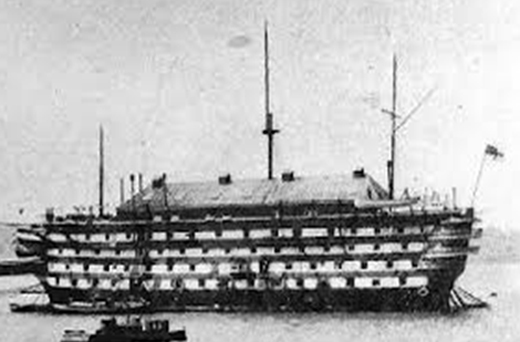
It was a major vessel having a total crew of 720 men comprising 38 officers, 69 petty officers, 403 seamen, 60 boys and 150 marines. The ship was launched on 14th March 1831. This ship took part in the first attack on Canton and in the assault on the Taku forts in 1859.
Similarly, the British, dumped Opium in large quantities in China using the services of prominent Indian and British businessmen of those times. Among the leading Opium traders was Matthew Jardine. His company Jardine, Matheson & Co owned two ships, named ‘Mangalore’ and ‘Carnatic’ which regularly carried Opium from Indian ports to China. A brawl involving the crew of the ship ‘Mangalore’ with Chinese locals ultimately culminated in the Battle of Kowloon, which China lost.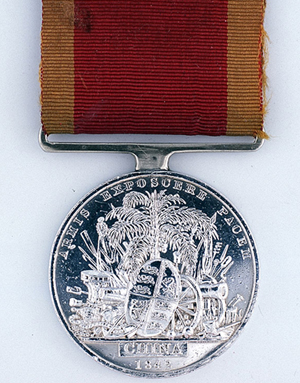 The First China War Medal 1842 was awarded to the British and Indian troops who served in the campaign.
The First China War Medal 1842 was awarded to the British and Indian troops who served in the campaign.
If the fighting joint Indo-British Army and Navy proved their mettle, equally, tradersand businessmen activated the Opium trade with China, which was dominated by a Parsi trader - David Sassoon. By the 1870s, David Sassoon had come to monopolize the trade of opium to China, having pushed the British firm Jardine Matheson and other Parsi traders of Bombay out of the business. By the end of the 1850’s it was said of him that "silver and gold, silks, gums and spices, opium and cotton, wool and wheat-- whatever moves over sea or land feels the hand or bears the mark of Sassoon and Company". During 1830-1831 alone, the Opium trade volume of the Sassoon’s was estimated to be around 18,956 chests of Opium. By the end of 1836 the figure had swelled up to nearly 30,000 chests. In 1839, the Manchu Emperor ordered that the Opium trade be halted. He ordered the Commissioner of Canton, Lin Tse-hsu, to lead a campaign against opium. Lin seized 2,000 chests of Sassoon opium and threw it into the river. An outraged David Sassoon demanded that Great Britain retaliate militarily. Thus, the Opium Wars began with the British Army fighting as mercenaries of the Sassoon’s!
The Opium war culminated in 1842 with the signing of "The Treaty of Nanking." This included special clauses inserted to guarantee the Sassoon’s the right to enslave an entire population with opium! The notable provisions in this "peace treaty" included full legalization of the opium trade in China, compensationfor the opium stockpiles confiscated by Lin, and territorial sovereignty for the British Crown over several designated offshore islands”.
Defeat of China at the hands of the joint Indo-British army culminated in China bowing to the demands of Sassoon and giving him exclusive rights to drug an entire nation! David Sassoon and his sons came to be known as "The Rothschild’s of The Far East," for their complete monopoly over the opium trade.
The Second Opium War resulted in a new "Peace Treaty" of Oct.25, 1860 which boosted the Opium trade from India by the Sassoon’s. In 1864 alone the Sassoon’s imported 58,681 chests of opium and by 1880 it had skyrocketed to 105,508 chests making the Sassoon’s the richest Jews in the world! The Sassoon’seven began licensing opium dens in each British occupied area with large fees being collected by their Jewish agents. Sassoon would not allow any other race to engage in what he called “the Jews’ business." The Opium trade from India, spearheaded by David Sassoon completely ruined China.
Our Army, Navy and Traders are fully capable of re-enacting the same dynamism asof their ancestors and inflicting crippling damage to the Chinese economy. The Government needs to seriously think of setting up a Far East Indian Naval Fleet to be based in the South China Sea, which move will keep the Chinese on tenterhooks. Any Indo-China conflict in the Himalayas should reverberate in the South China Sea also.
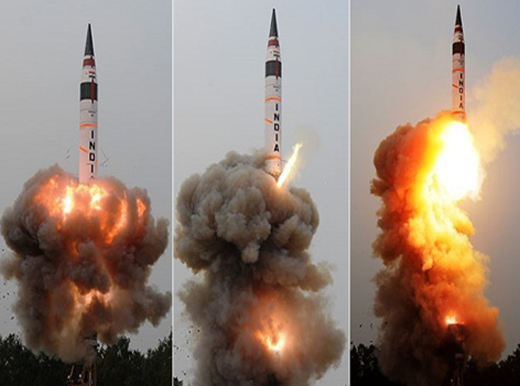
That apart, India’s Agni-IV and V missiles, can hit locations anywhere in China, including the Port of Shanghai, the largest and busiest seaport in the world.
Any Chinese misadventure in the Himalayas will be a costly gamble. No doubt, both countries will be affected if ever a conflagration breaks out. Neither side will be desirous of having a missile chat!
Related Article:
Part 1: THE ANGRY HIMALAYAS - String of pearls vs Garland of Opium
Part 2: The Angry Himalayas-Part II: Tibet Needs a Warrior - Monk or Dob-dobs
Part 3: The Angry Himalayas Part III: Opium Wars - How China Lost Vladivostok to Russia
Part 4: The Angry Himalayas - Part IV: Is It time for Opium War III?
Part 5: The Angry Himalayas: The Incredible Story of ‘Looty’ the Pekinese Toy - Dog
Part 6: The Angry Himalayas – Part VI: Eight Nation Alliance Crushes China in 1900
Part 7: The Angry Himalayas-Part 7: Will Modi make Xi’s ’China Dream’ into a ‘China Nightmare’?
Part 8: The Angry Himalayas Part-VIII: Proliferating Chinatowns - Threat to Global Security
Part 9: The Angry Himalayas- Part IX: Seismological Armageddon in the Making
 Dr. G. Shreekumar Menon IRS (Rtd) Ph.D: Former Director General of National Academy of Customs Indirect Taxes and Narcotics & Multi-Disciplinary School Of Economic Intelligence India; Fellow, James Martin Centre For Non Proliferation Studies, USA; Fellow, Centre for International Trade & Security, University of Georgia, USA; Public Administration, Maxwell School of Public Administration, Syracuse University, U.S.A.; AOTS Scholar, Japan. He can be contacted at shreemenon48@gmail.com
Dr. G. Shreekumar Menon IRS (Rtd) Ph.D: Former Director General of National Academy of Customs Indirect Taxes and Narcotics & Multi-Disciplinary School Of Economic Intelligence India; Fellow, James Martin Centre For Non Proliferation Studies, USA; Fellow, Centre for International Trade & Security, University of Georgia, USA; Public Administration, Maxwell School of Public Administration, Syracuse University, U.S.A.; AOTS Scholar, Japan. He can be contacted at shreemenon48@gmail.com
- Need For ‘Students, Alcohol and Drugs’ survey
- New Synthetic Drugs Trapping Youth
- Mood Modifying Chips - Future of Drug Use
- Ramping up Indo-Bangla border security
- IITM- A premier educational Institution in a forest. What can we learn?
- Former PM, Manmohan Singh: Notable laws passed under his tenure
- Hashish on Ratnagiri Seashore
- The Poor cry out to Us: Do we respond?
- Clandestine Meth Labs Sprouting Across India
- Hydro ganja from Bangkok latest craze among youth in India
- "Memories to Treasure" Dr.Michael Lobo’s new book
- Dominance of Private Universities: Will it make education inaccessible to underprivileged students?
- Monti Phest: A rich heritage of South Canara
- Kashmir Bhavan in Bengaluru: A must visit place
- "MAI and I" Book of Angelic Emotions
- Draupadi Murmu - The New ’President of India’
- Anthony Ashram in the city grows a classic museum
- First College of Fisheries in India - A Golden Jubilarian
- Flushing Meadows - A Vintage Mansion
- The Colonel�s Bequest
- A Mangalorean PM and his RBI Governor Brother: The Extraordinary story of the Benegal Brothers
- There is no higher religion than Truth: Theosophical Society
- L�affaire - Ashu & Yiju of Mangalore
- Mangalore in Kowloon
- 1568 to 2018 AD: 450 years of Christianity in Mangaluru
- Vice President elect Naidu moves on from nadir to zenith, the phenomenal journey
- Embracing the Outdoors: How Heated Jackets Are Revolutionizing Cold Weather Activities
- Efficient and Sustainable Packaging Solutions with FIBCs
- The Hybrid Kilt Revolution | Where Tradition Gets Trendy
- Affordable Elegance | Embrace Style on a Budget with Cheap Kilts
- Unleashing Style and Functionality | Exploring Tactical Kilts
- Mangalore’s Heroic Lady marks 105th Birthday
- Santa the Christmas spirit
- Geriatric care: Mangalore strikes a fine balance
- The Don Who Made Two Empires to Clash
- CHITRAPUR SARASWATS - A Great Kanara Community
- Our new President Ram Nath Kovind’s significant journey to Rashtrapathi Bhavan
- Marriages made in heaven, big fat weddings made in India
- Eid insight - The giver of glad tidings
- CITY INFORMATION
- TRAVEL
- TOURIST INFORMATION
- HEALTH CARE
- MISCELLANEOUS




 Write Comment
Write Comment E-Mail To a Friend
E-Mail To a Friend Facebook
Facebook Twitter
Twitter  Print
Print 



Dr. Menon’s sobservations are meticulous, and clearly a lot of research effort has gone in to produce such a first-rate set of brief and highly readable articles. The author’s slucid writing makes for a comfortable read for both the curious lay person as well as for the proficient strategist. The article series cannot stress the importance of studying history enough. It combines robust history lessons, economics, geopolitics, and persuasive logic in simple language.